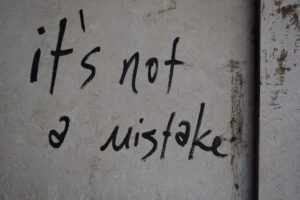Ever feel like you're just drifting, wishing things were different but not quite sure how to make a real change? I’ve been there. For years, I felt stuck in a loop of unhealthy habits like binge eating and endless gaming, feeling like my potential was just slipping away. It’s a tough spot to be in, wanting more for yourself but feeling overwhelmed by where to even begin.

That’s where having a personal development plan comes in. It’s not some rigid corporate document. Think of it more like a friendly roadmap you create for yourself, guiding you towards the life you truly want. It’s about being intentional with your growth. It’s about deciding who you want to become and then figuring out the steps to get there. And trust me, if I could turn things around, you absolutely can too.
Ready to Chart Your Course? Here Are 15 Tips
Creating a plan might sound daunting, but it doesn’t have to be. Here are some simple tips to help you get started on building a life you love:
Know Where You Stand
Before you can figure out where you’re going, you need to know where you are right now. Take an honest look at your life. What’s working well? What areas feel a bit stuck or need improvement? This isn’t about judging yourself. It’s about getting a clear picture so you can build on your strengths and address what’s holding you back. For me, this meant finally admitting how much time I was losing to gaming and how my eating habits were affecting my health. It was a hard look but so necessary.Define Your "Why"
This is super important. Why do you want to change or grow? What’s the deep-down reason? Is it for your health, your family, your career, your peace of mind, or your faith? When things get tough, and they sometimes do, your "why" will be the fuel that keeps you going. For me, strengthening my Christian Orthodox faith and seeking a closer relationship with God has given me a profound sense of direction and motivation that fuels my efforts. That deeper purpose makes all the difference.Set Clear, Achievable Goals
Vague wishes like "I want to be healthier" are hard to act on. Instead, set specific goals. What does "healthier" look like for you? Maybe it’s "walk for 20 minutes three times a week" or "eat two servings of vegetables daily." Make your goals measurable so you know when you’ve hit them. Make them achievable so you don’t get discouraged. And make them relevant to your "why."Break Big Goals into Tiny Steps
If you have a big goal, like losing a significant amount of weight as I did, it can feel overwhelming. The trick is to break it down into much smaller, manageable steps. Instead of focusing on losing 100 pounds, I focused on losing the first five. Then the next five. Each small step makes the bigger goal feel less scary and more doable.Focus on One or Two Things at a Time
It's tempting to try and change everything all at once, especially when you're feeling motivated. But that’s a quick recipe for burnout. Pick one or two key areas or habits you want to work on first. Give them your attention and energy. Once you’ve made progress there, you can move on to the next thing.Create a Simple Action Plan
For each small step, what actions do you need to take? Write them down. If your goal is to read more, your action might be "read for 15 minutes before bed each night." Keep it simple. Your plan doesn’t need to be complicated to be effective.Schedule Time for Your Development
If it’s not scheduled, it often doesn’t happen. Treat your personal development activities with the same importance as any other appointment. Block out time in your calendar for them. I found that short bursts of focused work, maybe 2-4 hours a day for my important tasks, were way more effective than trying to grind endlessly. You can apply this to any development goal.Find a Good Support System
Share your goals with someone you trust – a close friend, a family member, or perhaps someone from your church community. Knowing someone is cheering you on and can offer a listening ear makes a huge difference. They can help keep you accountable in a supportive way.Track Your Progress
Seeing how far you’ve come is incredibly motivating. Keep a simple journal, use an app, or just make notes on your calendar. When I was working on my health, tracking my food and exercise, even loosely, helped me see patterns and stay on course.Celebrate Your Small Wins
This one is huge! Acknowledge and celebrate your progress, no matter how small it seems. Did you stick to your new habit for a week? Awesome! Did you take that first difficult step? That’s fantastic! Remember when I mentioned losing over 110 pounds? That didn’t happen overnight. It happened by recognizing and appreciating tiny victories, like choosing a healthy meal or walking a little further each day. These small wins build incredible momentum.Learn from Setbacks
Everyone stumbles. Everyone has off days. It’s part of being human. Instead of beating yourself up, try to see setbacks as learning opportunities. What happened? What can you do differently next time? Don’t let a slip-up derail your entire plan. Just get back on track with the next small step.Be Patient and Persistent
Real, lasting change takes time. There are no instant fixes. Be patient with yourself and the process. Keep showing up, keep taking those small actions, and trust that your efforts will pay off. Persistence is key.Practice Daily Gratitude
This simple habit can shift your whole perspective. Take a few moments each day to think about what you’re thankful for. It could be big things or small things. Focusing on the good in your life can boost your mood and keep you motivated on your development journey. It helped me appreciate the progress I was making, even on tough days.Regularly Review and Adjust Your Plan
Life changes, and so will you. What worked for you a few months ago might not be the best approach now. Set aside time every now and then—maybe once a month—to look at your plan. Is it still relevant? Are your goals still meaningful? Do you need to make any adjustments? Be flexible.Remember It's a Journey, Not a Destination
Personal development isn't about reaching some perfect endpoint. It's an ongoing process of learning, growing, and becoming a better version of yourself. Embrace the journey, with all its ups and downs.
Creating a personal development plan is truly an act of self-care and hope. It’s about believing in your potential and taking active steps to live a more fulfilling life. You don’t need to have it all figured out to start. You just need to begin.
So, what’s one small area in your life where you’d like to see a change? Think about it for a moment. You don’t need all the answers right now. Just pick one thing and decide on one tiny step you can take today or tomorrow. Your journey of growth starts there. You’ve got this!





